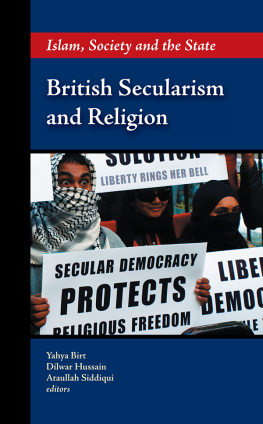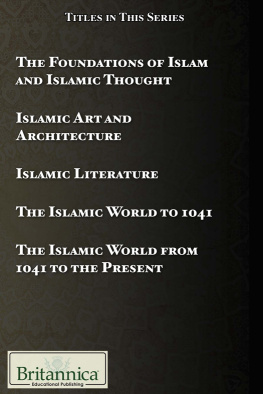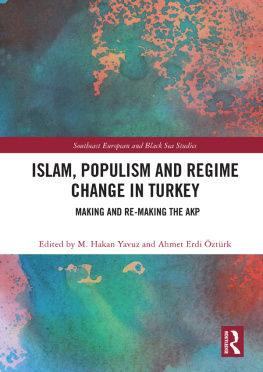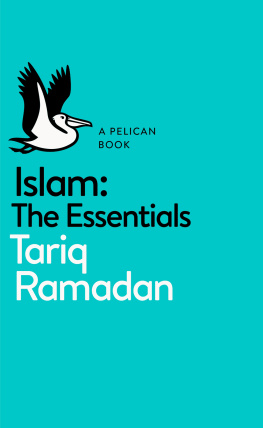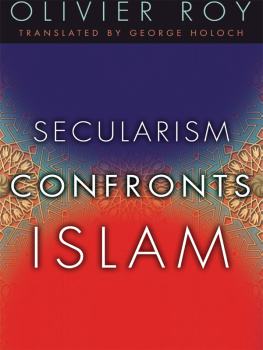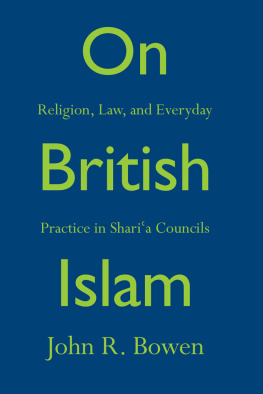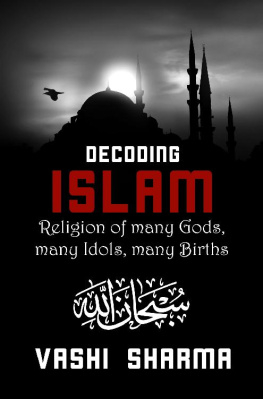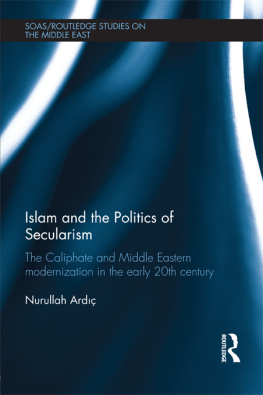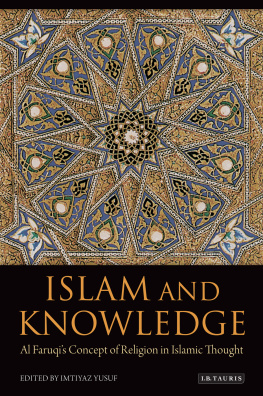
British Secularism and Religion
Islam, Society and the State
Y AHYA B IRT
D ILWAR H USSAIN
A TAULLAH S IDDIQUI
editors

First published in England by Kube Publishing Ltd,
Markfield Conference Centre
Ratby Lane, Markfield,
Leicestershire LE67 9SY
United Kingdom
Tel: +44 (0) 1530 249230
Fax: +44 (0) 1530 249656
Website: www.kubepublishing.com
Email:
The contributors, 2011
All rights reserved
The right of the contributors to be identified as the authors of this work has been asserted by them in accordance with the Copyright, Designs and Patents Act, 1988.
A Cataloguing-in-Publication data record is available from the British Library.
ISBN 978-1-84774-015-1 paperback
eISBN 978-1-84774-098-4
Cover Design: Nasir Cadir
Typesetting: Naiem Qaddoura
Contents
Introduction: Predicament or Promise? Exploring Britains Unsettled Secularism
Yahya Birt, Dilwar Hussain and Ataullah Siddiqui
1. Islam, Secularity and the Culture of Critical Openness: A Muslim Theological Reflection
Abdullah Sahin
2. The Need for Religious Secularity
Nick Spencer
3. Secularity and Religious Values
Norman Solomon
4. Towards a Critically-Faithful Muslim Presence in Public Decision-Making: A Rejoinder to Spencer and Solomon
Abdullah Sahin
5. Civic Recognition and Respect for Religion in Britains Moderate Secularism
Tariq Modood
6. Secular Governance in a Multi-Faith Society
Ted Cantle
7. We Dont Do God? How the Liberal-Left can Rediscover a More Moderate Secularism
Sunder Katwala
8. Secularism and Democracy: Some Responses to Ted Cantle and Sunder Katwala
Tariq Modood
Afterword
Maleiha Malik

Yahya Birt, Dilwar Hussain and Ataullah Siddiqui
It has long been thought that secularism was a settled question in Britain. The overall shape of the institutional arrangements between the established Anglican Church and the state, the steady co-option of post-war Britains greater religious pluralism, and the widely-held reluctance to invoke God in public debate has lent credibility to the perception that this has indeed been the case. However, since the late 1980s, Britains secular dispensation has become increasingly unsettled. Although far from being an exclusive contributory factor in our newly unsettled condition, Islam as Britains second largest religion has more often than not served as the lightning rod for this debate. A series of cultural and political crises from the Satanic Verses Affair, 9/11, 7/7, and the Danish Cartoons crisis, to name only some of the major flashpoints have served to put the national debate on the public role of religion back on to the centre stage.
Definitional Disputes
We have not set out in this collection to be overly prescriptive with regard to definitional matters. In the academic literature, and indeed in contemporary public debate in Britain, political, religious or other differences are often played out through definitional disputes themselves. That said, however, there is a broad distinction made between the general historical processes of secularisation, and a set of political prescriptions around the relationship between religion and politics, which is often termed as secularism.
With regard to secularisation, the sociologist Peter Berger defined it as the process by which sectors of society and culture are removed from the domination of religious institutions and symbols (Berger 1967: 107). By contrast, however, the philosopher Alisdair MacIntyre defines secularisation as the transition from beliefs and activities and institutions presupposing beliefs of a traditionally Christian kind to beliefs and activities and institutions of an atheistic kind (MacIntyre 1967: 7-8). This dichotomy between a naturalised sociological process in Bergers early thought and a more contested, purposeful transformation in MacIntryes definition reflects the fact that religious traditions may see the framing secular world of communication as their definitional opposite (Bader 2009: 110), and is emblematic of the polarised positions in the discussion. In a more philosophical context, secularism often refers to the understanding that life can be best lived by applying reasoned ethics, and the universe best understood by the process of reasoning, without reference to a deity or other supernatural concepts. Hence there are distinct undertones of atheism or agnosticism (and indeed anti-clericalism) associated with secularism in this sense.
However, the use of the term secularism in this volume is largely focused upon its political sense to refer to the relative separation between state and religion, to non-discrimination among religions and to the guarantees made with respect to the human rights of citizens, regardless of their creed. In his recent work, the philosopher Charles Taylor (2007, 2009) has sought to clarify the meaning of secularism, in a manner that underscores the difficult and contested nature of its definition, and helpfully takes this debate right to the heart of the issues that we think are important to deliberate upon. For instance, he argues that political secularism requires the pursuit of four distinct public goods that are in partial conflict with each other:
1. The exercise of religious freedoms (including the freedom not to believe);
2. The state should not be partial in favour of any one denomination or religion, and within this Taylor does include weak forms of establishment like Britains, which he regards as largely symbolic and vestigial;
3. Political culture must be inclusive, in Taylors terms fraternal, so that all, including religious groups, are involved in determining societys political identity and how it will achieve a consensus on the distribution of rights and privileges; and
4. Political culture should seek to promote and maintain harmonious relations between all groups, including religious ones.
The definitional dispute about what political secularism means reflects the debate over how these public goods may best be achieved. One view is that these goals may only be achieved if public debate is informed by the exercise of reason alone, a process that requires the strict separation of religion from politics. The other view is that secular democratic politics can, as a process, incorporate religious viewpoints within the public sphere, whose character may veer between harmonious relations and agonistic dispute, without harm to these public goods. The second view also assumes that there is sufficient overlap in views to achieve a consensus. Another argument Taylor makes is that insisting on the need to invoke a single higher authority, in this case, pure reason (but equally theocratic rule in a non-secular context) vitiates the fraternal imperatives of inclusion and seeking harmony in political culture. The usefulness of Taylors four-part definition lies in the fact that it highlights the delicate balance required to uphold religious freedoms, state impartiality between religions, the principle of inclusivity and the aspiration to seek greater political cohesion simultaneously.
It will be noted that while Abdullah Sahin in accepts the fact of a diverse society with the participation of religious voices in public life, but insists upon the rational and evidential basis of governmental policymaking, so making a secular distinction between public debate and policymaking.
Next page
